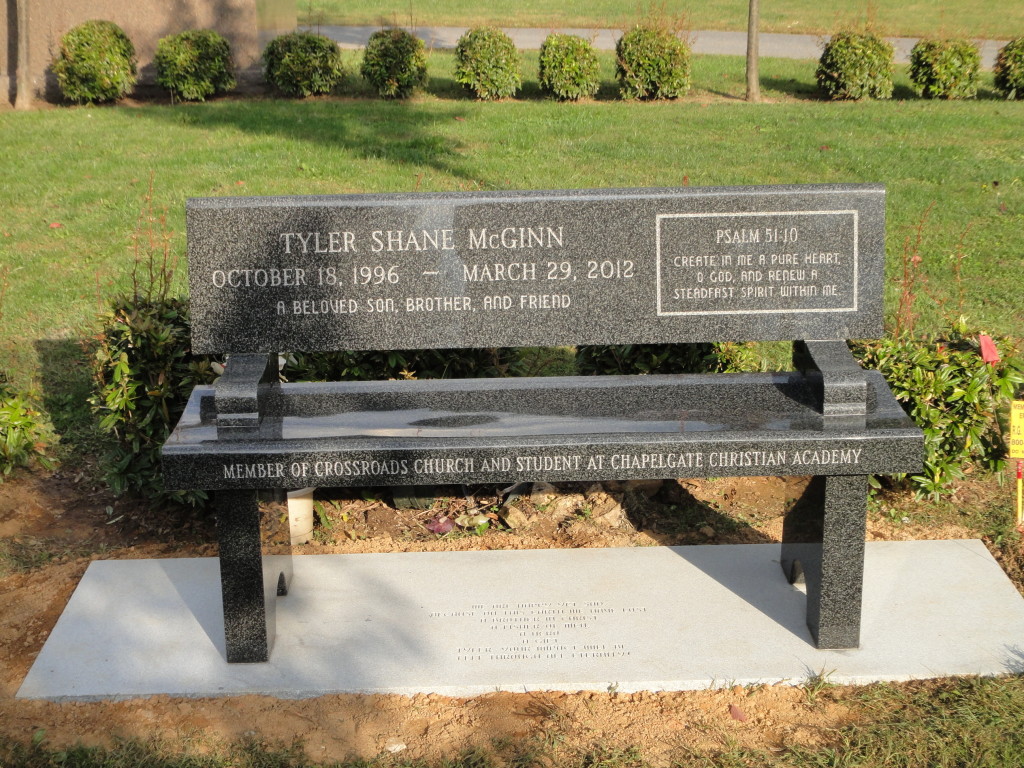One decade. One decade since our vibrant, silly, uniquely caring boy left us all for his eternal home. As I reflect on the past ten years, I am conscious of having survived an incalculably staggering loss.
In my posts on this site, I’ve attempted to define – to calculate – the utter horror of losing Tyler. Of losing my side-kick, my hero, my pride, my joy… losing this extraordinary being my soul celebrated for fifteen years.
This boy who gifted me with mounting delight and wonder as he grew into himself and toward a beautiful faith. Never…never…did I take this child for granted. Never.
I existed in an almost constant state of gratitude for him.
I treasured his life.
I treasured being his mom.
I treasured what was to come in the years ahead.
I prayed earnestly for his future wife.
Then…
He got sick. He suffered immeasurably. He died. At the age of fifteen years, five months, and eleven days.
I’ve learned these past ten years that describing such a loss cannot be achieved, at least not adequately. When are words ever enough to paint the gutting of one’s soul?
Yet as I reflect on a ten-year span, I am conscious of something beyond horrendous loss. I am conscious of growth, of movement, of the disentangling of complex knots of grief.
And today, I am focused on that.
I sat on Tyler’s memorial bench the other day. Unbidden, the thought fixed in my mind that my baby’s decaying form lie beneath me. This morbid notion bewildered me for a bit as I desperately attempted to excise the unwelcome image from my mind’s eye.
The unwanted vision of Tyler’s body under my feet sparked a memory from Scripture, and mercifully, my mind traveled to an Old Testament passage. The one where Ezekiel and God converse about a valley filled with dry bones. A narrative about decay and restoration.
I searched for the chapter in Ezekiel and read it. In the passage, God transforms bones into living creatures to convey a message of hope to the scattered southern kingdom of Judea:
“‘Our bones are dried up, our hope is gone, there’s nothing left of us.’”
In response, God says,
“‘I’ll dig up your graves and bring you out alive—O my people! Then I’ll take you straight to the land of Israel. …I’ll breathe my life into you and you’ll live.’” Ezek. 37:1-14
My heart smiled at the association. God used the image of bodies reduced to dry bones to portray life and hope restored. And I thought this a fitting portrayal of the Lord’s care for me over a period of ten years.
The people of Judah at the time of Ezekiel’s vision lived in exile, deported from a fallen Jerusalem to Babylon…
Life as they knew it had died.
Their identity as God’s chosen people was stripped away; their temple, destroyed.
They suffered traumatic memories of their defeat.
They pined in anguish for what was lost.
They lost hope that the grief of their present existence would be lifted.
I’d never before associated my own grief with that of God’s people in exile. Mine was an individual grief; theirs was a corporate grief.
Still, my grief felt analogous to a valley littered with dry bones…
Life as I knew it had died with my son.
My identity as his mother was stripped away; our home, empty without his presence.
I suffered traumatic memories of Tyler’s battle, his suffering, his end.
I pined in anguish for what was lost.
I lost hope that grief’s grip on me would ever be loosened.
At Tyler’s grave that day, I commiserated with these sixth century BC Judeans. Commiserated with their valley-of-the-dry-bones suffering…
“‘Our bones are dried up, our hope is gone, there’s nothing left of us.’”
But the story did not end in the valley!
Because in Ezekiel’s vision, God adorned those dry bones with sinews and flesh and skin and life. And God proclaimed,
“‘I’ll dig up your graves and bring you out alive…. I’ll breathe my life into you and you’ll live.’”
Countless times over the past decade, I struggled, buried under the weight of relentlessly pervasive grief. My days felt wooden, bereft of life. My hope of ever feeling differently faltered.
But in these despondent depths, God walked with me. I didn’t claw my own way out of my grave. He embraced me in the deep. He lifted me out as I emerged. He continues to sustain me.
God breathed into me. My days, these ten years after loss, are filled with life.
The passage in Ezekiel so strikingly demonstrates God’s restoration for those experiencing the deepest valleys of brokenness and defeat.
God’s restoration doesn’t turn back the clock. Even after their return to Jerusalem, the pain of exile remained woven into Judean history. Until my last breath, the pain of Tyler’s loss will permeate my existence.
I don’t have my magnificent son. He’s still gone.
But life a decade after Tyler’s death is no longer defined by his absence. Oh, it’s still hard. It’s still painful. My son’s loss can never be erased or healed this side of heaven.
But on the most painful, difficult day, this life I have is worth the living.
God still restores me. He restores hope. He restores my spirit. He breathes his life into mine.
And I can testify that a verdant life can spring forth from the dust of dry bones.
[My] bones are dried up, [my] hope is gone, there’s nothing left of [me].
I’ll dig up your graves and bring you out alive…. I’ll breathe my life into you and you’ll live.
Praise God!

